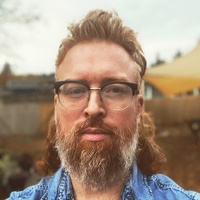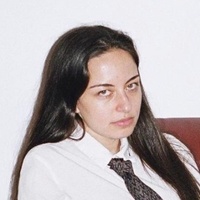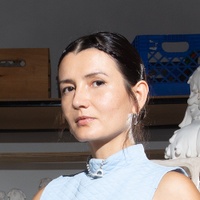On when to set rules
Writer Kevin Maloney discusses the importance of play, the meaning of life, and finding family within the arts.Is The Red-Headed Pilgrim a work of autofiction?
I would say it’s about 70% true in that I used my life as the basis for the structure of the novel. So, a lot of the locations and the plot points are based on reality, but in each scene, I wrote it the way I would write fiction, letting the story go wherever it wanted. So, if something happened within the scene that didn’t happen in my life but maybe captured the spirit of what that time in my life was like, I went with it. So ultimately, yes, it’s based on my life, but loosely.
I’ve struggled with writing from real life, namely making it feel plotted because life is so unlike a novel. There aren’t always through lines, conclusions, etc. Do you have any advice for writers who are trying autofiction?
I returned to some of my favorite novels, especially the ones that I loved when I was a teenager. A big influence was Slaughterhouse Five, which is based on Vonnegut’s service in World War II, but also incorporates time travel and aliens and whatnot. It’s a novel that has a lot of fun with reality as a starting point, while deviating from it significantly. For structure, I got the idea to retell my life through the prism of a young man who’s trying to find the meaning of life. In reality, my motivations were a lot murkier than that, but in many ways, I was a young seeker. By mythologizing my life as the story of a wanderer, I found a framework that really helped me write the novel. I cut scenes that didn’t fit that framework.
The framework was one of coming-of-age and pilgrimage?
Yeah. I originally started to write the novel almost like a divorce book. I’d read Scott McClanahan’s The Sarah Book, which I really love. I was trying to do something similar, but I felt like that wasn’t the only story I wanted to tell. I wanted to tell the story of someone who’s very naïve.
When I was going through a lot of that in real life, I was 25, but a very young 25. I thought it would help the reader to have the background of the protagonist being foolish and a late bloomer and not losing his virginity until he was in his 20s. That sets up the context for him attempting marriage at 25 and failing utterly. Whereas I think if I had plunged the reader right into the marriage, they wouldn’t necessarily have understood why the protagonist was so bad at it.
The structure of the novel is loosely based on Siddhartha by Hermann Hesse, which is about a young man who wants to go on a religious quest, and then decides the only way to do that is to not join the monastery, but instead to go live a regular life and get married and have kids, and that’s where he has to learn the lessons of life. I thought that was an interesting model.
When you do choose to use events or relationships from real life, what considerations do you make or not make for anonymity?
When I write, I just don’t think about that stuff at all because I think it’s so important to write a book that rings true to me. I don’t make rules for myself when I’m writing my early drafts. It wasn’t until the book got closer to publication that I started revisiting it to make sure that at least the protagonist, who’s based on me, is the worst character in the room. I didn’t want to write a book that was inspired by real-life people and make it feel like I was throwing them under the bus. I thought every scene should feel like I was throwing myself under the bus. And not necessarily on purpose, but I fictionalized most around my own divorce, because it unfolded so complicatedly in real life.
So, I simplified the narrative a bit and let myself really fictionalize in that area while still keeping to the spirit of it. I don’t know if my ex-wife will ever read it, but I think if she does, she would be like, “Oh, this is definitely not what happened.” So maybe that’s not as hurtful if there was any hurt to be had.
How did the process of writing The Red-Headed Pilgrim differ from Cult of Loretta?
Cult of Loretta was a happy accident. I was mostly working on short stories, and I had three stories that weren’t getting accepted at different journals. They didn’t have a beginning, middle, and end, but they were all powerful as fragments. And I got the idea to put them together. They were all based around this elusive female character that young men in high school had strong reactions to. And as soon as I put those three stories together, it just exploded. I thought it would become one longer story, but it became a novella. I wrote it in ten days, so it was very fast.
The Red-Headed Pilgrim is more the story I’ve always wanted to tell. It’s much closer to my real life. It’s broader in scope. It’s twice as long. And so, I think whereas Cult of Loretta was a happy accident, I couldn’t just replicate that happy accident. The Red-Headed Pilgrim is where I learned how to write a novel. I made a ton of mistakes. I made choices, then had to throw out entire sections. I learned a lot, whereas my first just popped out in a way that really worked, but not necessarily in a way that I learned from.
How else did you edit The Red-Headed Pilgrim? Did anyone help?
I have a writing group I meet with sometimes, and I would bounce very short parts off of them to see if the tone was working. But primarily, I work in isolation. I always want close to a finished draft before I share it with anyone. I have a real methodical way of editing where I either read what I’ve written into my phone or I use some kind of audio tool that’ll read it out loud, and I go for long walks and listen to it almost like it’s an audiobook. I make notes to myself while I walk around and listen to it. I do that over and over and over, day after day, for months until I feel like it almost works as a told story, which I think helps with pacing. It also helps with humor.
It’s only then when I get a pretty advanced draft that I’ll let my wife read it. She’s a really talented poet and a really talented editor. She gave me some great input. And then some of my friends read longer sections, and then I just sent it to a publisher after that.
How does your writing process differ with short stories?
I’m more likely to try writing a short story and fail, try again and fail, and then boom, it comes out all at once almost perfectly in one sitting. Then I just make small fine-tuning. It’s really fun. It’s where I do a lot of experimentation. I play with present tense versus past tense. It all feels very playful to me, whereas writing a novel feels like showing up to work every day. The play can happen in individual scenes in first drafts, but it’s a lot of small tweaking, advancing things, going back, fixing things. It’s just so much more like being in the weeds.
I wish I could write a novel more like I write short stories. I wish I was better at having that sense of play at all times, writing the first draft of a novel. Because of structure, at a certain point, you can’t just have fun. You have to think about…not necessarily where it’s going, but if it goes off track, you have to back up and try something different. So, I think there’s just more involved. But I hope to get good enough eventually that maybe writing a novel can feel that way, that playfulness that I feel while writing short stories.
Maybe now that this was the one that taught you how to write a novel, it’ll come easier. Consider yourself seasoned now. What, to you, makes a good story? A good novel?
I think for me, what makes a good story is something fast paced. I love a story that’s surprising. I love a story that, when I’m writing it, I surprise myself and make myself laugh, and something happens that I didn’t see coming. My favorite writer is Denis Johnson. He’s so good at endings because it’s almost like he’s written a short story, but the ending is a poem. It lifts you out of the cadence of the story through imagery or something else, like a big, surprising jump in time. As a reader, it gives me the sense that something happened, that there was a transformation. I don’t need my character to grow and learn a lesson, but I do need to feel like there’s some kind of alchemy.
As to what makes a novel, I’m still learning. I’m trying to find that answer for myself.
What does your work entail on the day-to-day? What’s your process look like, just writing?
I’ll go for months not being a daily writer, especially when a book comes out and I’m doing promotion for it or doing the other parts of being a writer. Interviews, things like that. But when I’m getting serious, I try to have a daily relationship. I’m usually brightest first thing in the morning. I work from home for myself. I’m self-employed. So, I can carve out the first three hours in the morning and really just jump into a writing project. And often what I do, like what I’m doing right now, is trying to gear up towards working on another novel.
It’s almost like going to the gym every day and getting those muscles back and just exercising, making it a ritual. I’ve noticed that if I’m writing every day, and I’ve been doing that for three weeks, all of a sudden, the quality of writing jumps for me. I think it was Flannery O’Connor who talked about the habit of art. Sometimes I lose it. And then what I have to do is regain the habit of art. After I’ve been doing it for long enough, I notice that the struggle stops. It becomes fun and exciting.
One of my friends, after a writing hiatus, forced himself to write a different short story every day for two weeks and he said the same thing—that they got much better, that it became more fun.
I did that at one point. I was going to write 2,000 words a day of a different story starting from scratch for 10 days. It started off so bad, but by day four, it was really great. But then after a while, I lost the momentum because, after I produced three really good stories, I wanted to just go back and work on those. I became more excited about working on them than creating new content. So, I think there is a sweet spot somewhere that happens just by showing up every day.
Earlier, you mentioned promotion and other writer things besides writing. What has promoting your novel been like for you? Is it taking a lot of time? Is it taking you places you didn’t quite expect?
Yeah. With Cult of Loretta , there were no advanced copies. We just dropped it on the world, and then whatever happened happened. And that was fun, but it was also haphazard. But Two Dollar Radio has an amazing promotional arm, and they sent out a ton of advanced copies. And that meant I recorded four podcasts in one week. I did a lot of interviews. I felt like COVID had got to a place where I could do an actual book tour. So, with some help from Two Dollar Radio and certain other outlets, I did that.
It was way more fun than I could have expected. It was crazy. It was an adventure. There was a moment when it all felt overwhelming—I’m a writer for a reason—I don’t want to be a musician who goes on tour all the time. But writers put out maybe one book every few years if they’re lucky. And so, I just felt like I had to lean into it and drink in every moment and do it as big as I could. Some of my best friends in the world are writers scattered across the country. Every city I picked to do a reading was also an excuse to see a good friend.
What pushes you to keep writing?
The world feels pretty chaotic and dark to me in general, but when I look at photographs of my favorite artists throughout history, like Frida Kahlo or Richard Brautigan, and I see a picture of them just petting a cat, it fills me with joy. I think about certain people who have lived very unique, creative lives full of art. For me, that’s the only way to get through life in a way that feels meaningful. I come from a family that’s obsessed with sports, and I just never fit in. So, I found my family in artists.
And now I’ve gotten to experience the rush that comes from putting my work into the world and getting a response. There’s the joy of going to these conventions and having people tell me that my book meant something to them. That’s an amazing thing. It fuels my desire to keep writing. But at the end of the day, what I come back to for that deeper reservoir is the sense of art being the thing that makes life feel worth living. That’s where I charge my batteries, I guess.
Kevin Maloney Recommends:
The music of Emahoy Tsegué-Maryam Guèbrou
The novels of Charles Portis
The paintings of Alice Neel
Cats
Food cart carnitas tacos with a cold beer on a sunny day in Portland, Oregon




